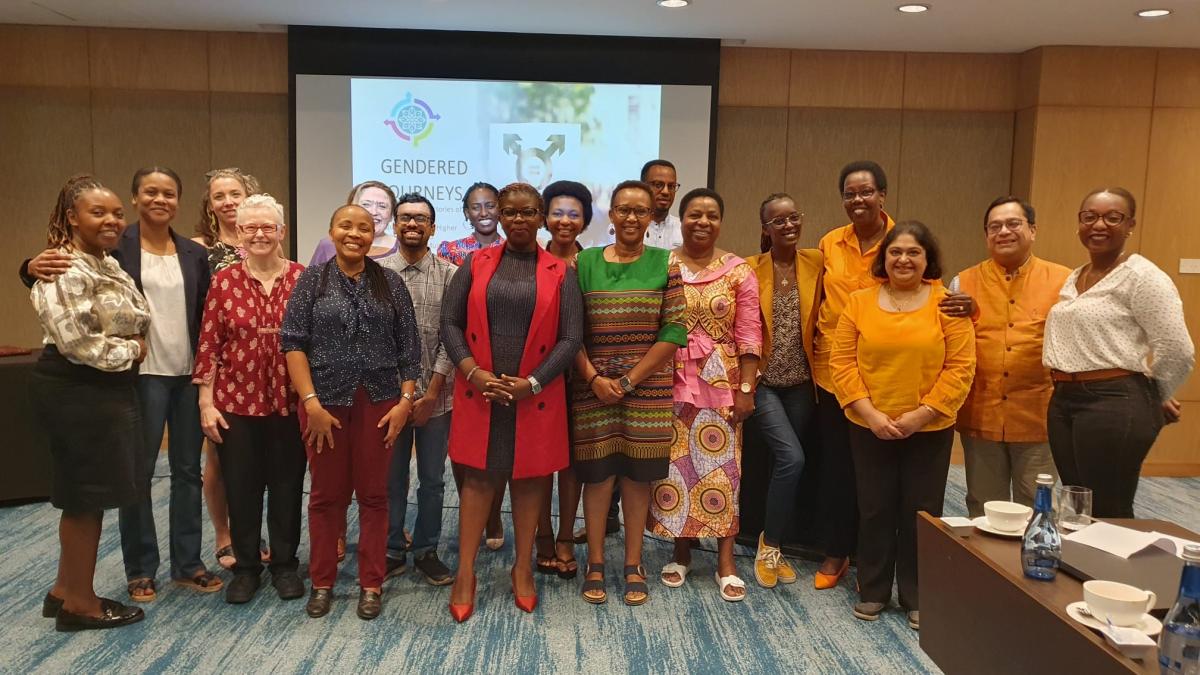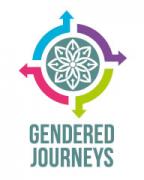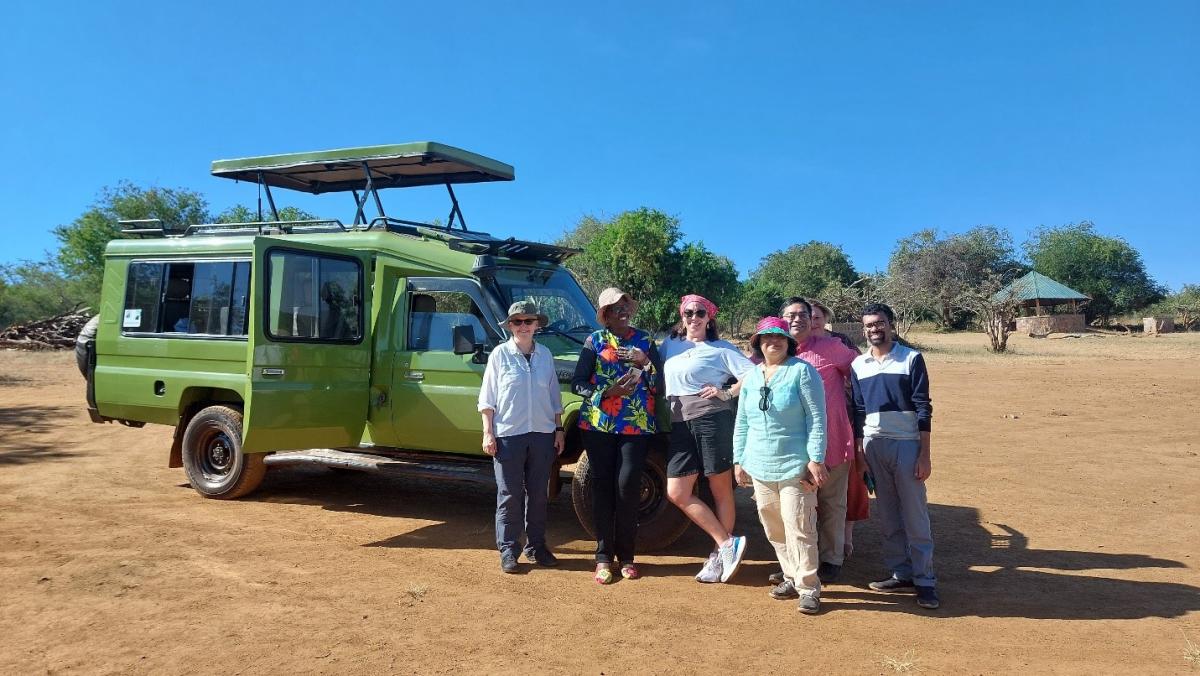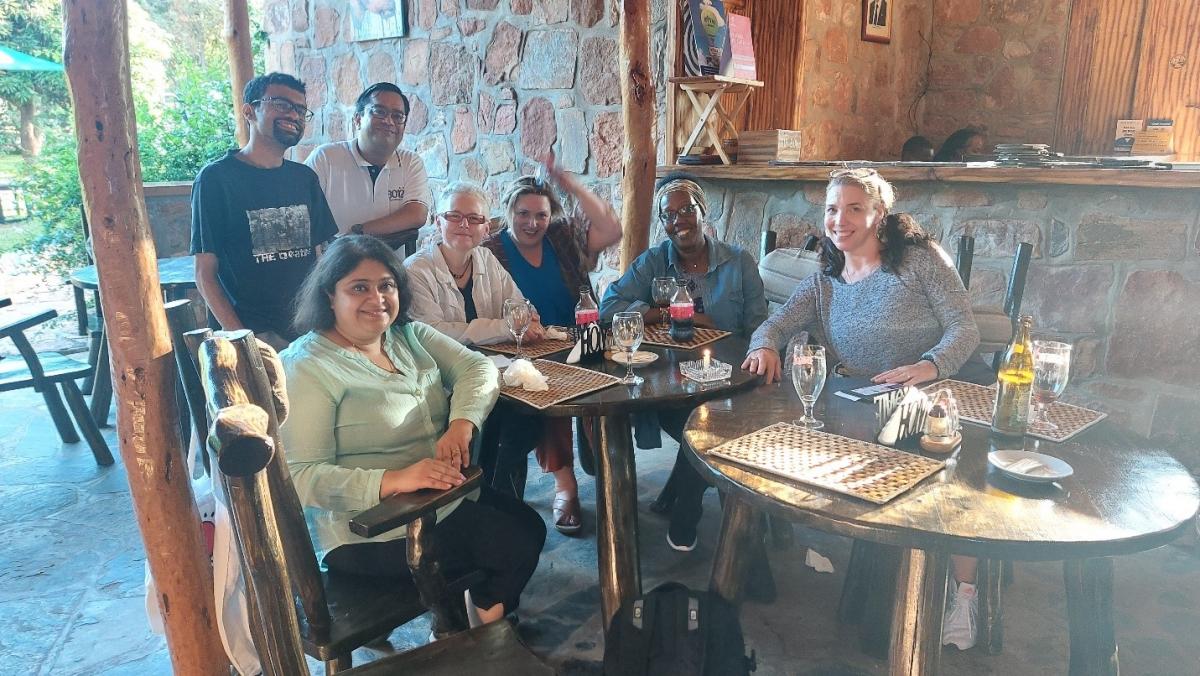Gendered Journeys international and interdisciplinary project team met in June 2023 in Kigali, Rwanda
The Gendered Journeys international and interdisciplinary project team met in June 2023 in Kigali, Rwanda to connect regarding preliminary project findings and to conduct a high-level invited stakeholder meeting of gender practitioners, researchers, educators, industry managers and policymakers.

 The Gendered Journeys project (www.gendered-journeys.com) is GCRF-funded to explore gendered influences on the progress of students through higher education and into skilled employment in STEM fields in India, Rwanda and the UK initially via survey and subsequently with in-depth interviews and eco-mapping techniques. There was focus specifically on Indian and Rwandan contexts as global south nations looking to address the persistent under-representation of women STEM students in HE, and in their skilled workforces (WEF, 2018). We note limited amount of research embedded in these countries, as in many global south contexts, particularly on intersectionally gendered STEM issues in non-‘western’ contexts.
The Gendered Journeys project (www.gendered-journeys.com) is GCRF-funded to explore gendered influences on the progress of students through higher education and into skilled employment in STEM fields in India, Rwanda and the UK initially via survey and subsequently with in-depth interviews and eco-mapping techniques. There was focus specifically on Indian and Rwandan contexts as global south nations looking to address the persistent under-representation of women STEM students in HE, and in their skilled workforces (WEF, 2018). We note limited amount of research embedded in these countries, as in many global south contexts, particularly on intersectionally gendered STEM issues in non-‘western’ contexts.
Rwanda was hosting the third International partner meeting in Kigali. This was a follow up of the second meeting which took place in India in January 2023 and the first meeting which had taken place in Glasgow in October 2022. The stakeholder meeting took place on Friday June 2, 2023, in the Kigali Marriott Hotel, with over a dozen high-level stakeholders in the room. The invited team was composed of representatives from specifically the The ministry of Education, Gender Monitoring Office, the Centre for Gender Studies within the University of Rwanda, STEM mentorship organisations such as the Rwanda Association of Women in Science and Engineering (RAWISE), civil society organisations such as the Rwanda Women Network, Young Women Leaders, the Gendered Journeys project team and advisory board members.

Every participant was invited to share their thoughts and expertise in the first instance. The Indian team then presented some preliminary findings from their interviews, particularly centering on issues of belonging, stereotypes in even gender-based harassment and violence. The UK team presented preliminary quantitative findings, particularly around issues of belonging and confidence for satisfaction and attrition from STEM programmes for the three national cohorts. Finally, the Rwandan team as hosts shared their thoughts for policy and practice recommendations.
The Rwandan stakeholders discussed policy shifts in the post-genocide context, particularly in top-down policies for Stem education, and specific gender equality and representation monitoring. It was discussed whether some top-down approaches might be ‘too good’, for instance, whether the push for women in parliament, women in tech industry and so on might ignore more grassroots, bottom-up calls for change in inclusive spaces and climates in organisations. Some positive examples of formal systems (government policy reviews), and non-formal networks (such as RAWISE, women’s networks), have done productive work in the area, but that informal activities that address dual pressures (such as career and the pressures of marriage/ kids/ homelife) are still needed, especially at key ‘transitions’/ crossroads in a woman’s life. This led to discussions of funding available to support women in STEM to continue careers, and re-consideration of ‘gender blind’ approaches in favour of those explicitly acknowledging multiple marginalizing circumstances of age, economic condition, living in informal settlements, family levels of education, and disability. A call for culturally reshaping gender roles and stereotypes was made, particularly for tackling gendered labour division and expectations in households.

As a follow up to this stakeholder meeting, the participants shared their views afterwards via an online survey in an overwhelmingly positive light. This meeting has led to the development of a policy paper contracting Indian and Rwandan policy changes over recent decades to tacked growing gendered inequalities in STEM study and skilled occupations. We look forward to presenting that paper at the PASCAL annual conference in Tapei in 2024.
 Printer-friendly version
Printer-friendly version- Login to post comments







